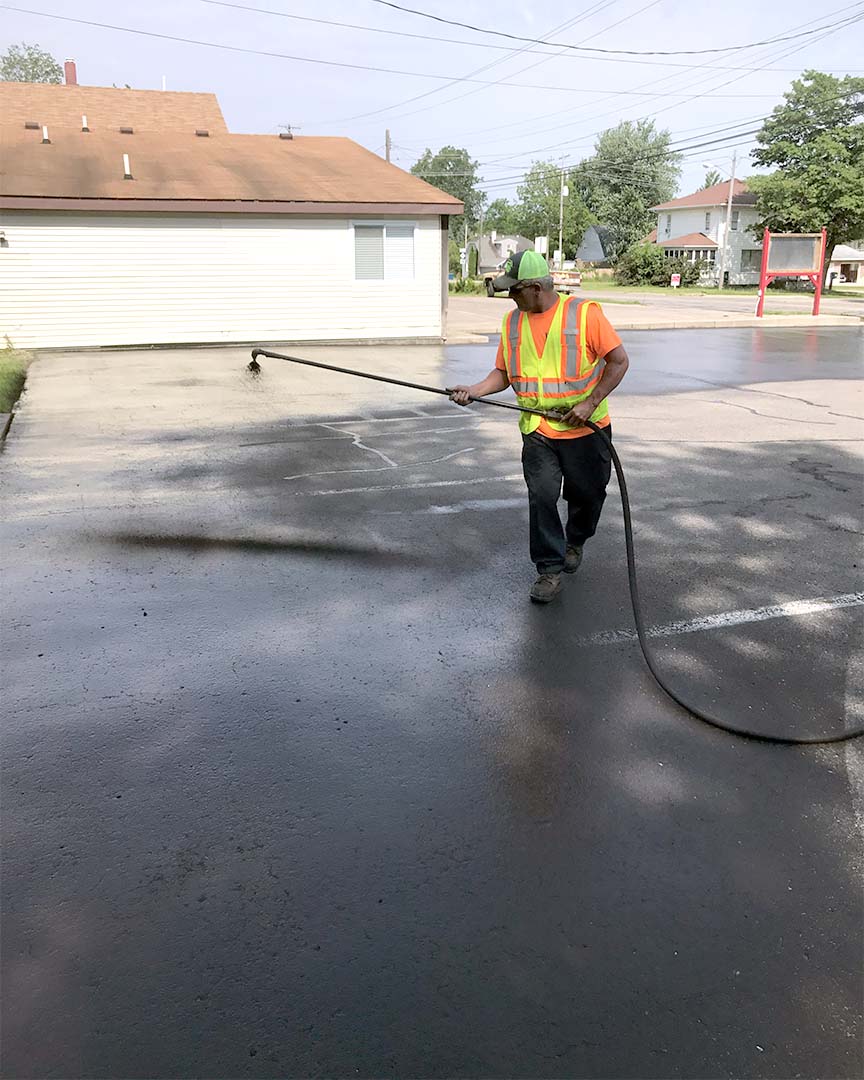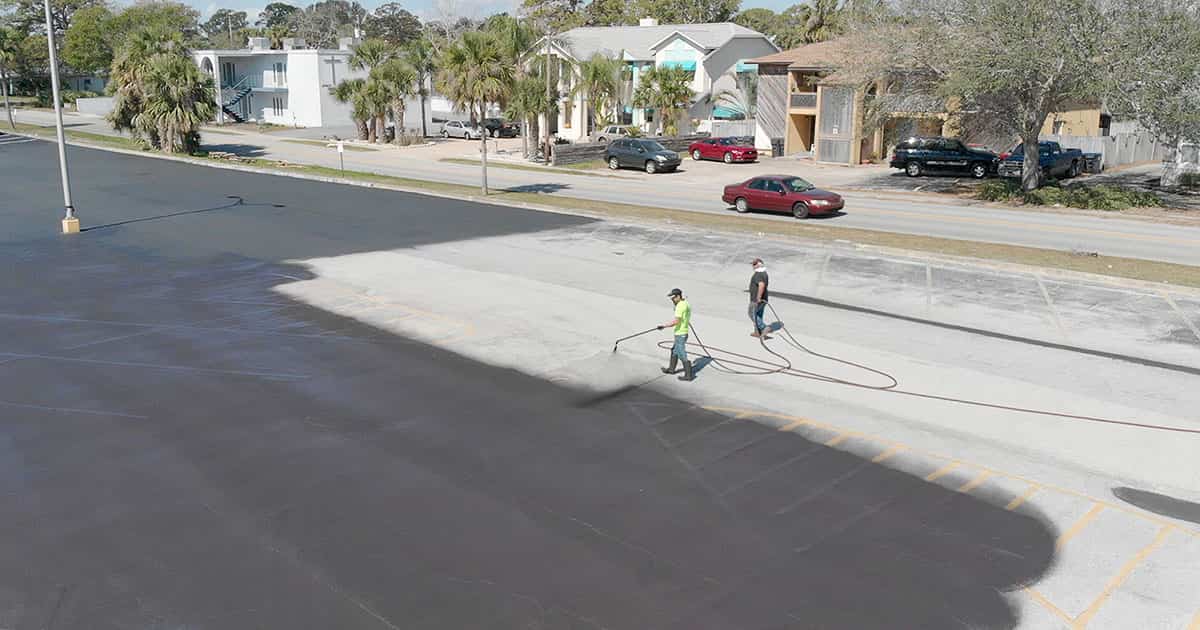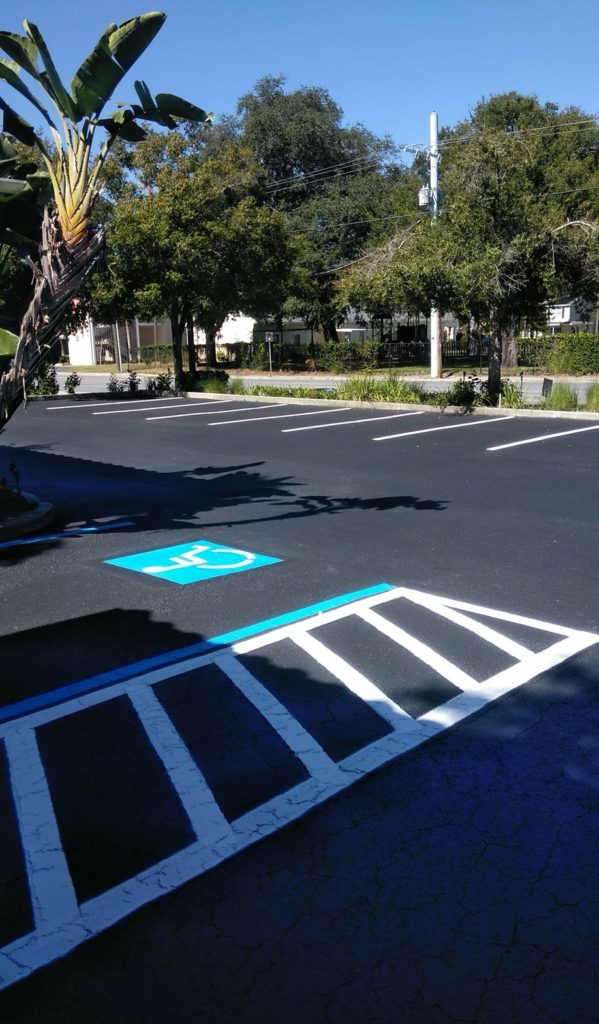Grasping Angled Parking: How Asphalt Sealing Enhances Commercial Lots
Grasping Angled Parking: How Asphalt Sealing Enhances Commercial Lots
Blog Article
Warm Mix Asphalt: A Lasting Option for Pavement
Hot Mix Asphalt (HMA) has emerged as a leading sustainable option for pavement solutions, supplying a myriad of environmental advantages and cutting-edge innovations. As the need for environment-friendly building and construction methods expands, checking out the subtleties of HMA's sustainability can give important understandings into the future of pavement services.
Ecological Benefits of Hot Mix Asphalt

Moreover, Warm Mix Asphalt aids to alleviate metropolitan warmth island impacts. Its dark color absorbs sunlight, reducing the quantity of warmth showed back right into the ambience contrasted to lighter-colored sidewalks. This can lower ambient temperatures in metropolitan areas, reducing the need for cooling and eventually minimizing energy intake.
On top of that, Hot Mix Asphalt contributes to boosted stormwater management. Its permeable nature permits water to recharge and infiltrate the pavement groundwater materials, minimizing runoff and the risk of flooding. These ecological advantages make Hot Mix Asphalt a sustainable selection for paving highways and roads.
Energy Efficiency in HMA Manufacturing
Is energy efficiency a critical consider the manufacturing of Hot Mix Asphalt (HMA)? Definitely. Energy plays a significant function in the manufacturing of HMA, affecting both price and environmental sustainability. One vital facet of power efficiency in HMA manufacturing is using warm mix asphalt (WMA) innovations (commercial parking lot paving). WMA permits the blending and positioning of asphalt at lower temperature levels compared to typical hot mix asphalt, resulting in minimized power usage during manufacturing. This procedure not just lowers gas use but likewise lowers greenhouse gas emissions, making it a much more eco-friendly alternative.
In addition, developments in plant modern technologies have actually led to more energy-efficient HMA manufacturing processes. By maximizing energy usage in HMA manufacturing, the market can minimize its carbon footprint while preserving high-quality sidewalk materials.
Recyclability of Hot Mix Asphalt
The recyclability of Warm Mix Asphalt (HMA) is a critical element of its sustainability and long-lasting ecological effect. HMA is among one of the most recycled materials in the USA, with over 100 million lots of reclaimed asphalt pavement (RAP) being recycled each year in new sidewalk construction. Reusing HMA offers numerous ecological benefits, such as lowering the need for virgin products, lowering energy consumption during production, and decreasing the quantity of waste sent out to garbage dumps.
The procedure of recycling HMA entails milling the existing sidewalk, crushing it into smaller sized pieces, and blending it with Related Site brand-new aggregate and asphalt binder to produce a recycled mix. On the whole, the recyclability of HMA plays a substantial duty in advertising sustainable techniques within the sidewalk market.

Long-Term Performance of HMA
Asphalt sidewalks show resilience and durability over an extended period, showing the long-lasting efficiency of Warm Mix Asphalt (HMA) In addition, advancements in HMA technology, such as the use of polymer-modified binders and warm mix asphalt, have actually further boosted the resilience and longevity of HMA sidewalks. By prioritizing top quality building and maintenance techniques, HMA proceeds to show itself Get More Info as a economical and sustainable service for durable pavement framework.

HMA: Toughness and Sustainability
Demonstrating both toughness and sustainability, Warm Mix Asphalt (HMA) has ended up being a cornerstone in the building of lasting pavement frameworks - regrading. HMA's resilience stems from its capability to endure hefty tons, rough climate condition, and high website traffic quantities, making it a trusted choice for roads, highways, and airport terminal paths. The composition of HMA, which typically includes aggregates, binder, and filler, plays an important role in boosting its long life and resistance to damage
In addition, HMA's sustainability hinges on its recyclability and discover this info here energy-efficient manufacturing procedure. The ability to recycle reclaimed asphalt pavement (RAP) in new HMA mixes minimizes the need for virgin products and lessens the environmental influence of pavement building and maintenance. Furthermore, the energy performance of producing HMA depends on its reduced mixing temperatures contrasted to other sidewalk products, bring about lowered energy consumption and greenhouse gas emissions.
Final Thought
In conclusion, warm mix asphalt (HMA) provides a sustainable service for sidewalk with its ecologically pleasant attributes. HMA's recyclability, energy efficiency in manufacturing, and long-term resilience make it an eco-friendly option for roadway building.
HMA is one of the most recycled products in the United States, with over 100 million tons of reclaimed asphalt sidewalk (RAP) being recycled annually in new sidewalk construction.The procedure of reusing HMA includes grating the existing pavement, squashing it right into smaller pieces, and blending it with brand-new aggregate and asphalt binder to create a recycled mix.Asphalt pavements demonstrate longevity and strength over a prolonged duration, showing the long-term efficiency of Warm Mix Asphalt (HMA) In addition, innovations in HMA technology, such as the use of polymer-modified binders and cozy mix asphalt, have actually additionally boosted the resilience and longevity of HMA pavements. The capacity to recycle recovered asphalt sidewalk (RAP) in new HMA blends decreases the demand for virgin materials and reduces the environmental impact of sidewalk building and construction and upkeep.
Report this page